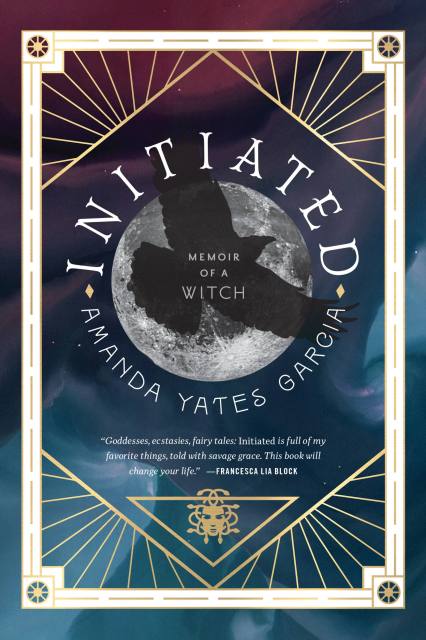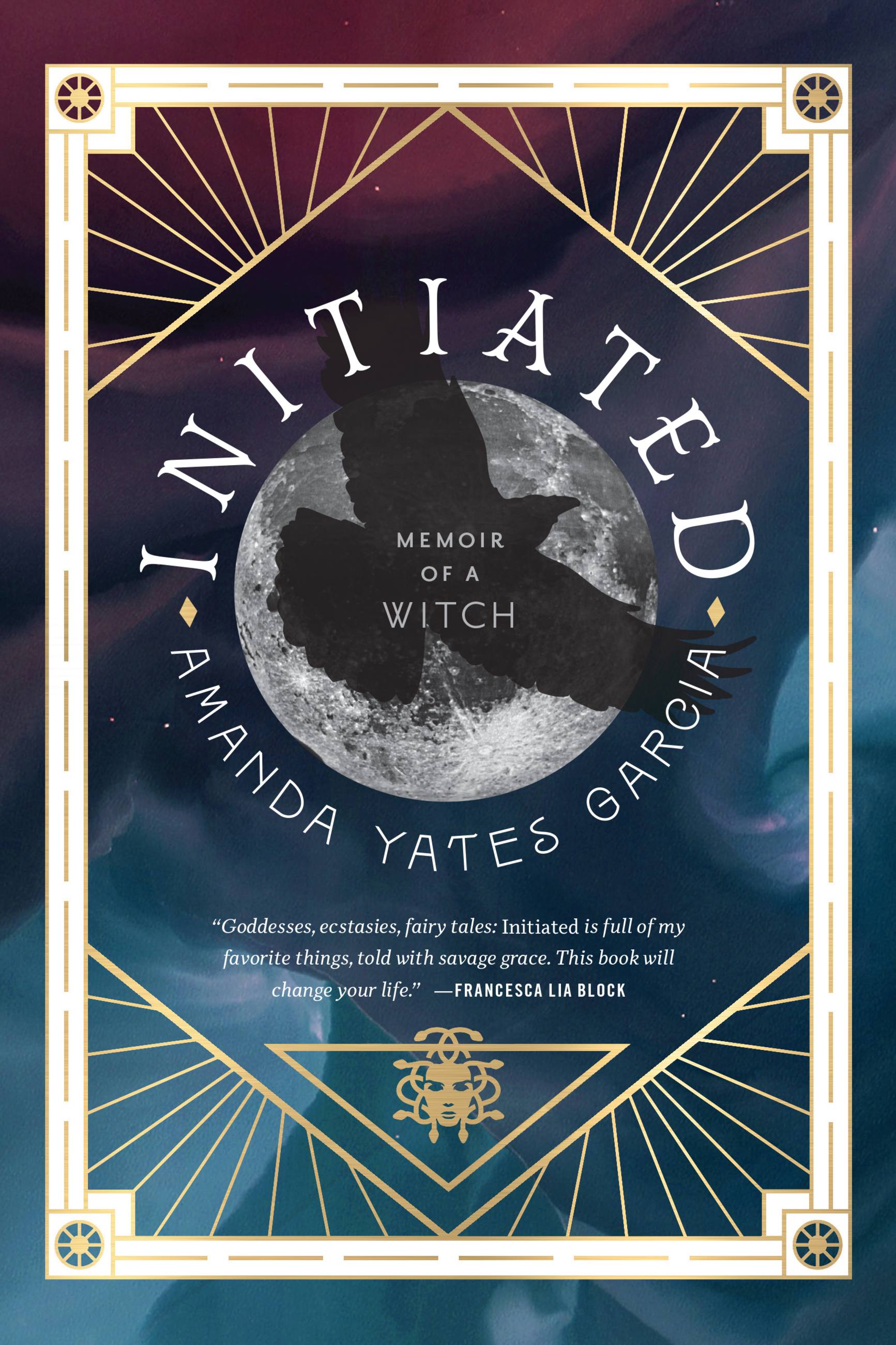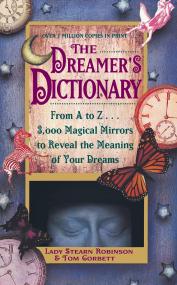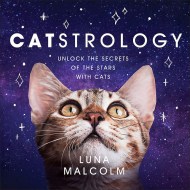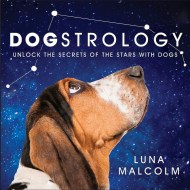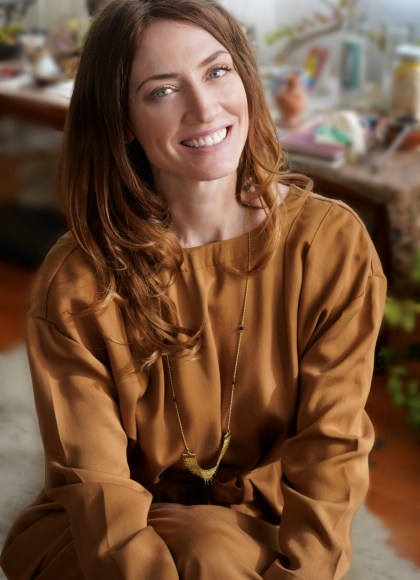By clicking “Accept,” you agree to the use of cookies and similar technologies on your device as set forth in our Cookie Policy and our Privacy Policy. Please note that certain cookies are essential for this website to function properly and do not require user consent to be deployed.
Initiated
Memoir of a Witch
Contributors
Formats and Prices
- On Sale
- Dec 6, 2022
- Page Count
- 368 pages
- Publisher
- Grand Central Publishing
- ISBN-13
- 9781538763063
Price
$17.99Price
$22.99 CADFormat
Format:
- Trade Paperback $17.99 $22.99 CAD
- ebook $13.99 $17.99 CAD
- Audiobook Download (Unabridged)
This item is a preorder. Your payment method will be charged immediately, and the product is expected to ship on or around December 6, 2022. This date is subject to change due to shipping delays beyond our control.
Buy from Other Retailers:
An initiation signals a beginning: a door opens and you step through. Traditional Wiccan initiates are usually brought into the craft through a ceremony with a High Priestess. But even though Amanda Yates Garcia’s mother, a practicing witch herself, initiated her into the earth-centered practice of witchcraft when she was 13 years old, Amanda’s real life as a witch only began when she underwent a series of spontaneous initiations of her own.
Descending into the underworlds of poverty, sex work, and misogyny, Initiated describes Amanda’s journey to return to her body, harness her power, and create the magical world she longed for through witchcraft. Hailed by crows, seduced by magicians, and haunted by ancestors broken beneath the wheels of patriarchy, Amanda’s quest for self-discovery and empowerment is a deep exploration of a modern witch’s trials – healing ancient wounds, chafing against cultural expectations, creating intimacy – all while on a mission to re-enchant the world. Peppered with mythology, tales of the goddesses and magical women throughout history, Initiated stands squarely at the intersection of witchcraft and feminism. With generosity and heart, this book speaks to the question: is it possible to live a life of beauty and integrity in a world that feels like it’s dying?
Declaring oneself a witch and practicing magic has everything to do with claiming authority and power for oneself, of taking back our planet in the name of Love. Initiated is both memoir and manifesto calling the magical people of the world to take up their wands: stand up, be brave, describe the world they want, then create it like a witch.
-
"Mythic journeys to the underworld, goddesses, ecstasies, fairy tales, ghosts, love, sex, female empowerment, challenging the patriarchy: Initiated is full of my favorite things, told with savage grace by my favorite oracle, the powerful and devastatingly enchanting Amanda Yates Garcia. This book will change your life."Francesca Lia Block
-
"Initiated is breathtaking--gorgeously written, fierce, political, personal, and deeply inspiring. I love this book."Michelle Tea, author of Modern Tarot
-
"Yates Garcia takes us on a sweeping, expansive, generous, and beautifully intuitive journey into feminine power in Initiated. She leads us fearlessly into the dark underworld of patriarchal oppression, intergenerational trauma, loss and grief, where, she says, every witch must go to find her magic. This book is a powerful political protest and a call to return to first principles as a nation, a society, and a people. Come to it seeking your own artistic and intellectual path, and leave trusting yourself, trusting others, and trusting in the unconditional love you will find in the collective soul of the world."Sarah Gerard, author of Binary Star
-
"A journey through wild beauty and deep wounds, Initiated is the book we need right now-it is an embrace, an awakening, a forging by flame and an enchanted rallying cry."Jade Chang, author of The Wangs vs. the World
-
"To read Initiated is to undergo your own. Amanda's wisdom and insight into the heart of the witch is complimented by her ability to weave together a story that is also a spell. Somewhere between a memoir and a grimoire, this book invites the reader to reflect on their own cycles of life and death as well as their own relationship to the witch. All in a way that's uplifting, engaging, feminist as fuck and so unapologetically fierce. No one else could have written this story, and whether you identify as a witch or not, you'll leave obsessed."Gabriela Herstik, author of Inner Witch: A Modern Guide to the Ancient Craft
-
"Early on in her beautifully written memoir, Amanda Yates Garcia says of her sister, 'I decided to love her forever.' That is precisely how I felt about this gorgeous memoir that refuses to be labeled or to fit inside any kind of box. Part history, part mythology, part poetry, part prose; but mostly: magic. Which is to say: this is a book about love. A book which challenges the reader to a deeper understanding of what it means to be human in a complicated and beautiful world. My copy is dog eared and highlighted and I plan to pass it on to all my friends. This book reminds us that we all are powerful with the capacity to change the world, one witch at a time."Jennifer Pastiloff, author of On Being Human
-
"This bold and transporting story of one woman's awakening into her own spiritual power reads as a metaphysical coming of age, bearing gifts for anyone seeking her own alignment in the world."Amelia Gray, author of Isadora
-
"Amanda Yates Garcia's Initiated is the ideal coming-into-witchhood story for our troubled times. It functions not only as a scathing personal critique of patriarchy and oppression, but as a manual for dismantling them from the ground up, told with style, deep spiritual insight, and brutal honesty. Raw, lyrically enchanting, and brimming with feminine power, this is the book of shadows and light our imperiled world desperately needs right now."Michael M. Hughes, author of Magic for the Resistance: Rituals and Spells forChange
-
"In a world desperately in need of re-enchantment, Initiated provides more than its fair share. It is a battle cry, a blueprint, and most of all, a love letter to the traditions of witchcraft, the benefits of co-creation and interdependence, and our innate ability to manifest our collective power as women and humans."Leah Dieterich, author of The Vanishing Twins
-
"As much as witches are warriors, we are also guardians-of a history, culture, and practice that's been erased and persecuted for millennia. Recently, I've watched with apprehension as witchcraft, in a much-needed renaissance, has also become a lifestyle trend on Instagram, ahistorical and commodified. I've been hoping for a visibility that cannot divorce witchcraft from its insurrectionary origins, its lineage of liberation, its blood memory that connects us to its feminist fire. As Initiated luminously testifies, Amanda Yates Garcia is the kind of warrior and guardian witches need: subversive and scholarly, empowered and devoted, a magician and a firebrand."Johanna Hedva, author of On Hell
-
"More than a story of coming into one's own, Initiated is a page turning word orgasm of flowering language. It's a reexamination of patriarchal hierarchy, a relinquishing of the idea that because something is, is because it's supposed to be. It embraces fierce feminine energy that crackles with the transformative excitement of giving birth to one's self, standing in our own power and releasing old narratives that have held us back, individually and culturally. Initiated is a fierce and radical call to action."Nikki Darling, author of Fade Into You
-
"Initiated is a stunning act of generosity from a fearless and wise spirit guide. Amanda Yates Garcia has cracked open her life -- the brutal lessons, the romantic entanglements, the yearning to be a force of love -- to empower all of us to write our own magic myth into the sky."Margaret Wappler, author of Neon Green
-
"I see Amanda Yates Garcia realizing a kind of magic choreography here: reaching back through millennia, dragging forth darkness by the handful, recalling ancient women misremembered, denied, hounded and destroyed, holding the pain of misogyny and changing it with intention, into light."Grace Krilanovich, author of The Orange Eats Creeps
-
"You don't need to be a witch to be enchanted by Initiated. Because this book casts a spell on all of us, asking us to summon our own mythologies, powers, and voices. With oppressive regimes and violence against the planet and our people at our every turn, Amanda Yates Garcia's Initiated peers within the abyss, creating magic and meaning despite - and as a reaction toward - the darkness. In these pages, a battle cry. A mythic celebration of inner power. And a meditation on healing and justice - not just for the self, but, as Garcia says, "for all beings."Lisa Marie Basile, author of Wordcraft Witchery and Light Magic for Dark Times
-
"Effortlessly weaving Goddess myths from diverse cultures with her own life story, Garcia's reverent, powerful work will encourage readers to forge their own values and join in her 're-enchantment' of the world."Publisher's Weekly (starred)
-
"Garcia has writing chops and a clear devotion to social justice. She's also extremely well-read in the history of myths, witchcraft, and folklore from many parts of the world, and effectively draws connections between all of these stories."Buzzfeed
-
"In this stunning memoir, she recounts [Yates] recounts her experiences with sex work, poverty, sexism, and more, and writes about the magic of community, healing, and love."Bustle
-
"A remarkable story, well told."Library Journal
Newsletter Signup
By clicking ‘Sign Up,’ I acknowledge that I have read and agree to Hachette Book Group’s Privacy Policy and Terms of Use
